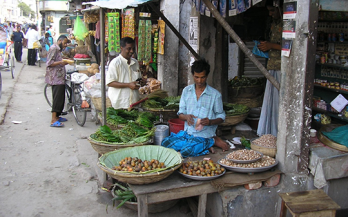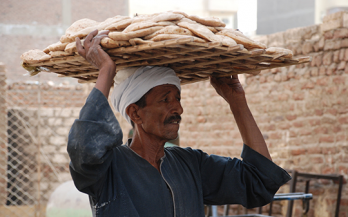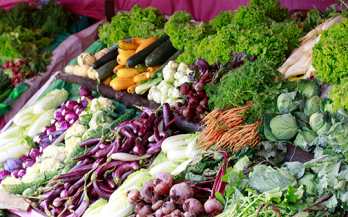Global Alliance for Improved Nutrition (GAIN), Food Security Group, Department of Agricultural, Food, and Resource Economics Food Security Group - 13/04/2021
This infographic has been prepared by GAIN based on the blog Keeping food flowing within African food systems by busting policy myths penned by GAIN's Executive Director Lawrence Haddad commenting on the paper "Essential non-essentials": COVID-19 policy missteps in Nigeria rooted in persistent myths about African food supply chains.
Saul Morris, Lawrence Haddad - 03/12/2020
Poor people in the global South eat diets with few nutrient-dense foods, putting children and adults alike at risk of malnutrition. Strategies to improve their diets will look different depending on whether current access to such foods is mostly via home production or via purchase and on whether poor families actually want to consume more of specific nutrient-dense food groups.
Christophe Béné, Jessica Fanzo, Lawrence Haddad, Corinna Hawkes, Patrick Caron, Sonja Vermeulen, Mario Herrero, Peter Oosterveer - 13/08/2020
To operationalize the great food system transformation and ensure its sustainability, five areas of research and action require more attention: economic and structural costs; political economy; diversity of cultural norms; equity and social justice; and governance and decision support tools.
Stella Nordhagen, Ty Beal, Lawrence Haddad - 20/05/2020
Animal-source foods (ASF; meat, poultry, fish, dairy, and eggs) have attracted considerable attention for both their role in diets and their environmental impacts - and their production also plays an important role in livelihoods, particularly in low- and middle-income countries (LMICs).
Jessica Fanzo, Lawrence Haddad, Rebecca McLaren, Quinn Marshall, Claire Davis, Anna Herforth, Andrew D. Jones, Ty Beal, David Tschirley, Alexandra Bellows, Lais Miachon, Yuxuan Gu, Martin W. Bloem, Arun Kapuria - 13/05/2020
The Food Systems Dashboard brings together extant data from public and private sources to help decision makers understand their food systems, identify their levers of change and decide which ones need to be pulled. The Global Burden of Disease study showed that unhealthy diets contribute to 11 million deaths per year.
Lawrence Haddad - 20/02/2020
How should the CGIAR's research programme be focused to make it as impactful as possible given the changes being faced by the world's population over the next 10 years? This viewpoint suggests a firm emphasis on research needed to unlock the potential of food systems to deliver improved nutrition, environmental sustainability and stronger livelihoods, with a focus on the tradeoffs and synergies therein.
Lynnette M. Neufeld, Shawn K. Baker, Greg S. Garrett, Lawrence Haddad - 12/04/2017
The need for evidence to inform nutrition program design and implementation has long been recognized, yet the generation and use of evidence for program decision making has lagged. The purpose of this study was to assess the strengths and areas for improvement of current population-based and targeted fortification programs.
Lawrence Haddad, Corinna Hawkes, Patrick Webb, Sandy Thomas, John Beddington, Jeff Waage, Derek Flynn - 30/11/2016
Lawrence Haddad, Corinna Hawkes and colleagues propose ten ways to shift the focus from feeding people to nourishing them. The purpose of this paper was to set out a new global research agenda for nutrition. It is aimed mainly at researchers, funders and governments, but has important messages for all stakeholders.







